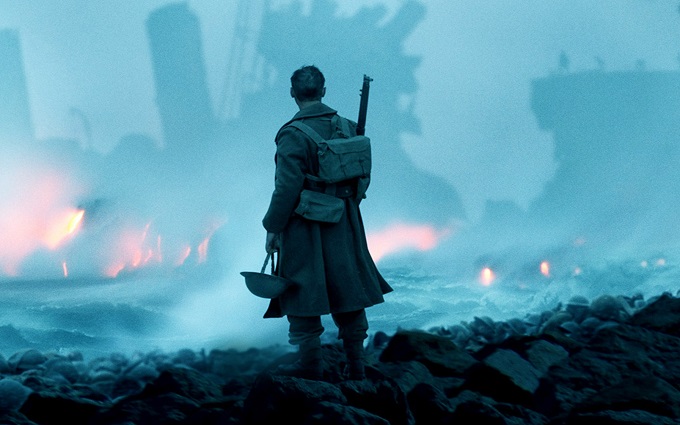Dunkirk Review

The Plot
The iconic military evacuation of British forces from France during World War 2 is brought to life following the experiences of soldiers awaiting rescue on land, boats rushing across the sea to save them and fighter pilots trying desperately to protect them all from the air in the skies above.
The Good
Christopher Nolan is one of the most critically accomplished and popular filmmakers of his generation, with Dunkirk he manages to deliver a film which is respectfully realistic but yet still generally uplifting and thrilling. It’s an incredibly difficult balance to create but the film does a generally excellent job at balancing harrowing tragedy and sombre reflection on the horrors of war with more optimistic themes of survival and courage. It’s testament to Nolan’s skill as a storyteller that he is able to turn such potentially grim historical subject matter into something that feels intimate and gripping.
Nolan relies on a familiar line up of charismatic stars such as Tom Hardy, Cillian Murphy, Kenneth Branagh and Mark Rylance. He also once again takes full advantage of Hans Zimmer’s genius, with the acclaimed composer providing yet another excellent soundtrack that pulse through the film with the captivating urgency of a ticking clock. Zimmer’s score helps tie together the three strands of the storytelling and keeps audiences suitably adrenalized.
Nolan also bravely hands leading roles to a host of young stars, including a very prominent acting debut for One Direction star Harry Styles. Styles and his fellow fresh faced co-stars do a fine job of collectively breathing fear and desperation into efforts to escape the doomed beaches of Dunkirk. With minimal dialogue and commendable physical performances they make the nightmare of war a horrific reality for audiences. Though Styles may predictably grab headlines and plaudits, in truth there’s little to distinguish him from a generally fine ensemble of young actors.
In truth the film’s most memorable star turn comes from Tom Hardy. Given the role of heroic spitfire pilot, in truth Hardy only has to stare stoically out his cockpit and occasionally pull on his joystick to make him a crowd pleasing highlight. It’s a gift for any actor but at least Hardy is a deserving recipient.
The Bad
Dunkirk is as well-crafted as it possibly could be, but it still can’t escape the fact that it is a war film about a particularly dark, tragic and familiar portion of military history. While individual human stories may hold audiences interest, overall there’s no surprises and the scale of loss of life and human suffering makes it difficult to ever truly ‘enjoy’ proceedings.
Certainly compared to Nolan’s other popular work there’s little chance audiences will leave the cinema feeling an urgent need to race back for another viewing. Real life horrors of human conflict are clearly far less escapist fun the gravity defying dreams and comic book superheroes.
While the film’s approach of exploring the evacuation efforts form the land, sea and air serves as a neat way at exploring the full scope of events, sometimes the transition back and forth between each strand can be a little jarring. Repeating events from different perspectives can briefly confuse audiences already feeling a little overwhelmed by the epic fog of war on screen. It’s never a major problem but not quite as flawless in its execution as it could be.
The Ugly Truth
Christopher Nolan delivers a War film that is both admirably faithful and thrilling. An accomplished director, excellent soundtrack and stoic ensemble cast all combine to keep Dunkirk afloat and to grip audience’s attention from start to finish.
Review by Russell Nelson